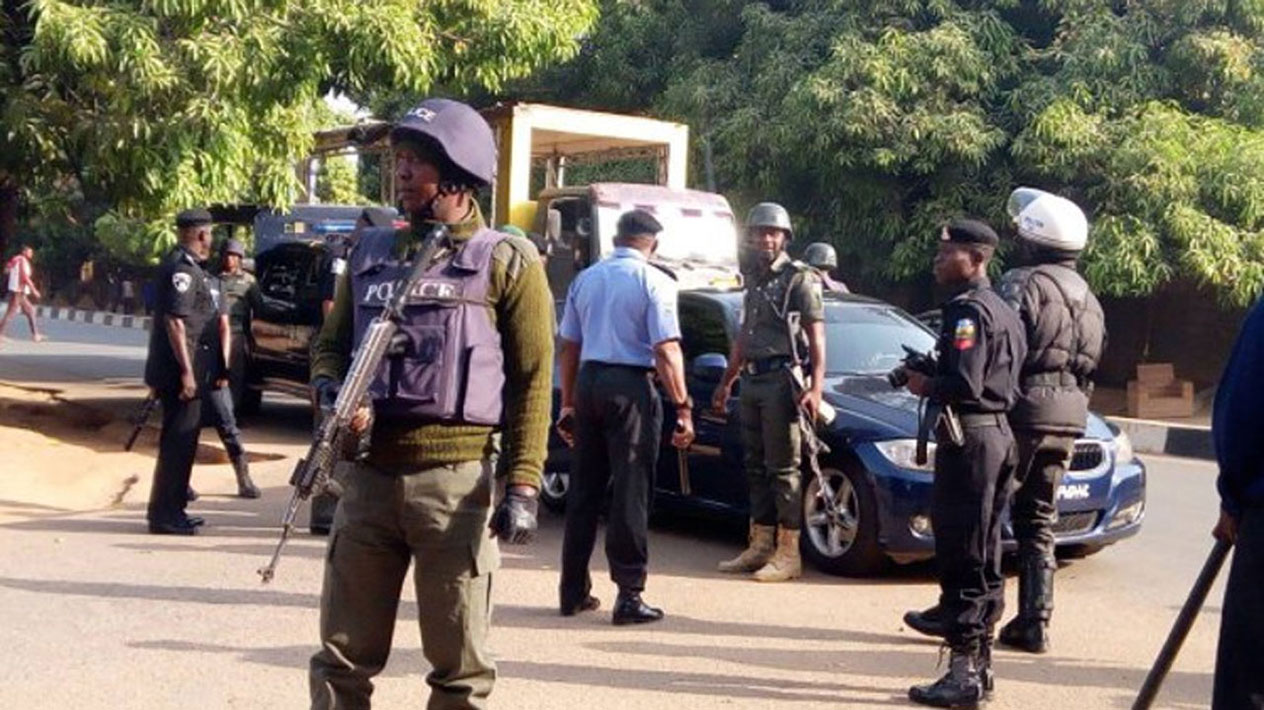As Nigeria enters the heady season towards the 2023 general elections, there are certain observations about the on-going democratic process that raises serious concern about the state of Nigeria’s democracy.
Reasonable criticisms had trailed the outrageous cost of nomination and expression of interest forms of the major political parties. As if that was not scandalous enough, widespread allegations of heavily monetised primaries took centre stage even as the twin spectres of lawlessness and violence once again reared their heads in the course of the primary elections across the country to haunt our democracy and threaten its fundamentals.
In Lagos, Bayelsa and Cross Rivers States, a total of six people were killed during the All Progressive Congress (APC) and the People’s Democratic Party (PDP) primary elections confirming the threats against Nigeria’s democracy. Also from Anambra to Kwara to Oyo, Ondo, Ekiti, Nasarawa, Taraba, Ogun and Niger States, suspected political thugs and unidentified men dressed in military uniforms invaded and sacked venues of primary elections injuring many delegates as a ugly illustration of the impunity and lawlessness that has continued to endanger our electoral process.
More troubling still, the June 18 governorship election in Ekiti State threw up arguably the virulent threat to Nigeria’s democratic process: vote-buying. All the governorship candidates who participated in the elections, including the eventual winner, Mr Biodun Oyebanji of the All Progressive Congress (APC), Mr Olabisi Kolawole of the Peoples Democratic Party (PDP), Mr Wole Oluyede of African Democratic Congress (ADC), Ms Kemi Elebute-Halle of Action Democratic Party (ADP) and Segun Oni of the Social Democratic Party, among others in separate interviews have exonerated their parties from allegations of vote-buying.
Their denial notwithstanding, credible eye-witnesses’ account from local and international observers and sundry civil society groups were unanimous in lamenting the massive vote-buying that took place. Also mentioned was the alleged shameful participation by security agencies and electoral officials in the bizarre bazaar at various polling units.
For instance, the Transition Monitoring Group (TMG) in a statement by its Chairman, Auwal Rafsanjani, said ”vote-buying was observed across the 16 local government areas of the state with political parties bidding for the votes of the electorates”. Similarly, Centre for Democracy and Development (CDD) disclosed that its observers documented “41 instances of vote-buying and selling at polling units”. Also YIAGA Africa alleged that party agents from one of the major political parties reportedly shared N7,000 each to voters who showed how their ballot was marked.
While the Inter-Party Advisory Council (IPAC) through its Chairman, Yabagi Yusuf Sani described the election as “a daylight robbery characterised by brazen and outrageous vote buying” the British High Commission stated unequivocally that “buying and selling of votes has no place in a democracy”.
The National Association of Seadogs (Pyrates Confraternity) is very disturbed by the deepening of these troubling trends surrounding Nigeria’s electoral process. We are particularly appalled by the blatant impunity characterised by bribe-for-vote during the Ekiti governorship election. It is shameful and despicable that after 23 years of uninterrupted civil rule, political parties and their candidates would be so deeply involved in the disreputable financial inducement of the electorate to procure votes.
We believe that democracy can only thrive when the electorate is enabled and encouraged to choose its leaders and representatives in a transparent process free of coercion and inducement. No country can lay claim to abiding democratic precepts and values if her citizens cannot elect leaders or representatives in a free and fair manner. The resort to bribe-for-votes by political parties before or during elections imprints an indelible question mark on the credibility of the electoral process, makes mockery of democracy, and undermines its very raison d’être.
Vote buyers and those willing to trade their votes are equally culpable in this reprehensible vote buying saga. By trading its votes, the electorate repudiates its constitutional right to civic duty, and willingly gives up the right and ability to hold elected officials accountable. Leaders and representatives who buy their ways to power are not accountable to the people. This is commonplace in Nigeria’s political landscape with politicians showing scant regard for the electorate after assumption of office. It is for this reason there is a sharp disconnect between politicians and the electorate once elections are won. The implication of this as the country gears up to another cycle of elections is laden with foreboding as democracy is at the risk of being imperilled.
The Ekiti vote-buying incident should not be allowed to repeat itself. We therefore join calls for suspects arrested and paraded by the Economic and Financial Crimes Commission (EFCC) over allegations of vote buying to be charged to Court without delay. The EFCC have had ample time to carry out investigations and gather evidence to arraign the suspects in line with extant laws against electoral malpractices. Any further foot-dragging will be unacceptable and would lend credence to credible suspicions that the security agencies are complicit in undermining Nigeria’s electoral system.
It is heart-warming that the Independent National Electoral Commission (INEC) has also recognised the dangers vote-buying poses to Nigeria’s democracy. This should spur the electoral commission to liaise with relevant security agencies to devise a foolproof strategy for upholding the sanctity of the ballot before the Osun governorship election. A situation which allows a voter’s thumb-printed ballot paper to be visible to party agents would only facilitate vote-buying as witnessed in Ekiti.
INEC and security should probe the allegations of its personnel’s involvement in the vote-buying incident. Anyone found culpable should be made to face the law. Security agencies deployed to polling units should resist the temptation to be induced and ensure those moving around with cash at polling units are arrested.
The National Assembly should speed up the process to pass into law the bill to establish the National Electoral Offences Commission and Tribunal before the 2023 general elections. The bill which had passed second reading in the House of Representatives had already been passed by the Senate in 2021. Just as recommended by the Justice Mohammed Uwais(rtd) led Electoral Reform Committee in 2007, the Electoral Offences Commission would be saddled with the responsibility to investigate and prosecute electoral offenders effectively taking the burden off INEC. Speedy prosecution of electoral offenders would bolster and sanitise Nigeria’s wobbling electoral system. The Federal Government and all relevant agencies must do everything possible to safeguard Nigeria’s electoral process; on no account must we allow anti-democratic forces to sabotage our democracy.
Abiola Owoaje
NAS Capoon
Abuja


![[PRESS RELEASE] AFFIRMATION OF EMERGENCY RULE IN RIVERS STATE THROUGH “AYES AND NAYS”](https://www.nas-int.org/wp-content/uploads/2025/03/National-Assembly-Ayes-and-Nays-400x250.jpeg)

